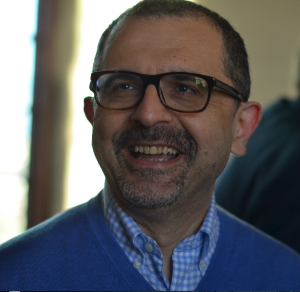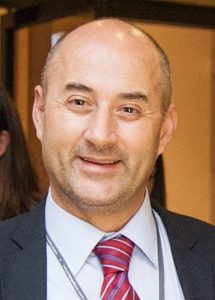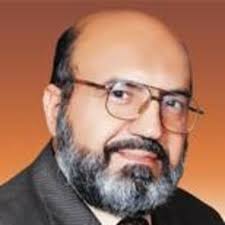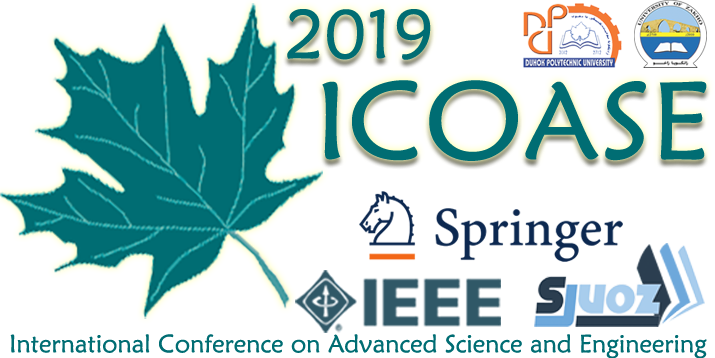THE QUEST FOR THE CORRECTNESS OF COMPUTER SYSTEMS: THE PROGRAM VERIFICATION APPROACH.
Prof. Dr. Parosh A. Abdulla
Parallel computer systems have become a critical part of the infrastructure of our society during the last decade. This is due to the emergence of modern platforms such as multicores and cloud technology. Nowadays, multicores are available on mobile phones, laptops, embedded systems, servers, and numerous other devices that are integral parts of our daily life. Furthermore, cloud technology is increasingly based on efficient storage and exchange of data across large-scale networks. Such networks include enterprise services (e.g., Google Cloud or Microsoft Azure), banking systems, online markets (e.g., Amazon), and social networks (e.g., Facebook). The ubiquity of parallel systems means that their efficiency and correctness are vital goals both from the security and economical points of view. However, the complexity of these systems implies that designers need to consider new challenges for which we currently lack satisfactory solutions.
In this presentation, I will describe a particular approach to the analysis of the correctness of computer systems in general and parallel systems in particular, namely that of program verification. I will introduce the main concepts behind program verification, and the new challenges that the program verification community is facing due to the emergence of the system paradigms mentioned above.
While the verification approach is highly technical both from the mathematical and the algorithmic point of views, my lecture will be self-content and should be understandable even to non-experts.
Biography

He was an undergraduate student one year at the University of Technology, Baghdad, two years at the University of Sulemani, and one year at Salahaddin University before obtaining a BSc in Electrical Engineering, in 1982. In 1990, he obtained a Ph.D. in the computer at Uppsala University, Sweden, and became a full professor at the same university in 2000.
His areas of interest include formal methods, automata theory, logic in computer science, program verification, program testing, and model checking. He has more than 200 publications in the DBLP database.
He is a recipient of the CAV award for his contributions in the area of verification of programs with infinite state spaces, and a recipient of the IEEE Logic in Computer Science (LICS) test-of-time award for his paper in 1996 on the verification of well quasi-ordered programs. He has received more than 10 best paper awards including ones from the European Association for software science and technology at ETAPS 2013, the European association for theoretical computer science at ETAPS 2010 and ICALP 2001, and the European Association for programming languages and systems at ETAPS 2000.
CONTRIBUTION OF REMOTE LABS TO ENGINEERING EDUCATION
Prof. Dr. Gustavo R. Alves
This keynote addresses the use of remote labs in Engineering Education. It explains what remote labs are and how they differ from both traditional and virtual labs. It provides examples in different Engineering areas, and then focus on one particular remote lab that supports the teaching and learning of electrical and electronic circuits. This remote lab, named Virtual Instruments Systems in Reality (VISIR), was developed by Prof. Ingvar Gustavsson, from the Blekinge Institute of Technology, Sweden, in 1999. VISIR obtained the Award for the Best Remote-controlled Laboratory in the world in 2015, given by the Global Online Laboratory Consortium (GOLC).
Biography

Gustavo R. Alves graduated in 1991 and obtained an MSc and a Ph.D. degree in Computers and Electrical Engineering in 1995 and 1999, respectively, from the University of Porto, Portugal. He is a professor at the Polytechnic of Porto – School of Engineering, since 1994. He has authored or co-authored +250 publications, including book chapters and conference and journal papers with a referee process, and also co-edited 2 books.
He was involved in 19 national & international research projects. His research interests include engineering education, remote experimentation, and design for debugging & test. He served as program co-chair of the 1st and 2nd International Conferences of the Portuguese Society for Engineering Education (CISPEE2013 and CISPEE2016), of the 3rd Experiment@ International Conference, and as general chair of the 11th Remote Engineering and Virtual Instrumentation (REV2014) conference and of the 3rd Technological Ecosystems for Enhancing Multiculturality (TEEM2015) conference, and also as a Program Committee member of several international conferences.
Dr. Alves is the present President of the Portuguese Society for Engineering Education (SPEE), a senior member of the Institute of Electrical and Electronics Engineers (IEEE), and the Global Online Laboratory Consortium (GOLC), the Portuguese Engineers Association (OE), the Association for Computing Machinery (ACM), and of the Virtual Instrumentation Systems in Reality – Special Interest Group (VISIR-SIG). He has served as the guest editor at the International Journal of Online Engineering (iJOE), the International Journal of Engineering Pedagogy (iJEP), the IEEE Latin-American Learning Technologies Journal (IEEE-RITA), the European Journal of Engineering Education (EJEE), and Computers in Human Behavior (CHB). He currently serves as an Associate Editor for the IEEE Transactions on Learning Technologies.
COGNITION AND THE FUTURE OF INFORMATION SECURITY
Prof. Dr. Eng. Sattar B. Sadkhan – SMIEEE
Cognitive science is the interdisciplinary, scientific study of the mind and its processes. It examines the nature, the tasks, and the functions of cognition (in a broad sense). Cognitive scientists study intelligence and behavior, with a focus on how nervous systems represent, process, and transform information.
The goal of cognitive science is to understand the principles of intelligence with the hope that this will lead to better comprehension of the mind and of learning and to develop intelligent devices. The cognitive sciences began as an intellectual movement in the 1950s often referred to as the cognitive revolution.
The information system security is a critical issue for the organizations since it leads to big financial losses. The understanding of cybersecurity threats is not only an innovative requirement but also it is a conservative task. The rapid changes in technologies and services are major driving and leading concerns to the cybersecurity, requiring reassessment and renewal of standardized policies for countermeasures to the resistant vulnerabilities.
The main aim of this talk is to improve the understanding and perception of latest security threats, security countermeasures, and the future trends of Information security based on using the cognitive science in many aspects related to the Cryptology discipline.
Biography

Prof. Dr. Eng. Sattar B. Sadkhan is a professor in Wireless Digital Communication and Information Security, Iraq, Babylon University. He is the Honorable Chair of IEEE IRAQ Section at IEEE, Chairman of IEEE ComSoc. IRAQ Chapter, Chairman of IEEE Computational Intelligence Iraq Chapter, and Chair of URSI Iraq Committee. He is an Honorable Research Director of IRAQ for (BRCORP) Institute and Member of International Association for Cryptologic Research. Dr. Sattar has Published more than (240 ) papers in International Conferences, and International Journals, Supervised (160) M.Sc. and Ph.D. Postgraduates since 1984.
He is Editor in Chief of (8) International Scientific Journals (in many countries), Associate Editor in Chief of other (6) International Scientific Journals (in many countries), Member of Editing Board of (32) International Journal (in many countries), Member of International Scientific Organization more than (20), and Member of International Scientific Committees more than (250) International Conferences committees.
Prof. Sadkhan has been a Keynote Speaker in Many International Conferences in Turkey, China, India, Pakistan, Malaysia, Jordan, and many local and International. conferences in IRAQ.
3,674 total views, 2 views today
